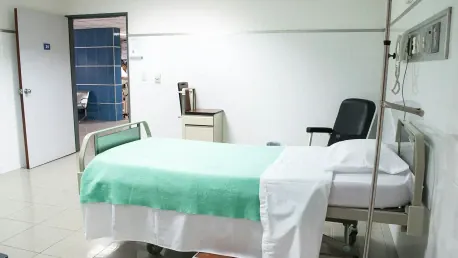In 2023, a revealing report by the WHO/UNICEF Joint Monitoring Programme (JMP) has brought attention to the alarming state of water, sanitation, and hygiene (WASH) in health care facilities worldwide, particularly within primary health care settings in fragile contexts. These fragile contexts include the 60 countries, areas, and territories classified as such by the OECD, exposing significant infrastructure deficiencies. Over a third of health care facilities in these regions are without basic water services, while more than half lack essential hygiene. Basic environmental cleaning is provided in only a third of these facilities, basic waste management in a quarter, and basic sanitation in less than a fifth.
According to the report, these deficiencies have a massive global impact. An estimated 2 billion people are affected by inadequate WASH services in health care facilities, with 1.6 billion lacking basic sanitation and 1.5 billion without essential waste management. Furthermore, 1.3 billion people contend with insufficient cleaning standards, 1.1 billion are affected by inadequate hygiene practices, and 717 million lack basic water services in their health care facilities. The danger posed by these shortcomings is not localized but stretches across various regions. For example, 9% of health care facilities, serving 743 million people, had no water service in 2023, with a staggering 37% of facilities in fragile contexts facing this issue. The availability of basic water services shows disparities, ranging from 60% in sub-Saharan Africa to 76% in Northern Africa and Western Asia.
The Urgent Need for Improved WASH Infrastructure
In 2023, a report by the WHO/UNICEF Joint Monitoring Programme (JMP) shed light on the critical state of water, sanitation, and hygiene (WASH) in health care facilities globally, especially in primary health care settings within fragile contexts. These contexts include 60 countries and territories identified by the OECD as having substantial infrastructure challenges. Alarmingly, over a third of health care facilities in these regions lack basic water services, while more than half are without essential hygiene measures. Only a third provide basic environmental cleaning, a quarter manage basic waste, and less than 20% offer basic sanitation.
The report highlights alarming global consequences, with about 2 billion people impacted by inadequate WASH services in health care facilities. Specifically, 1.6 billion lack basic sanitation, 1.5 billion are without essential waste management, 1.3 billion suffer from insufficient cleaning standards, and 1.1 billion face inadequate hygiene practices. Additionally, 717 million lack basic water services. These issues are widespread; in 2023, 9% of health care facilities serving 743 million people had no water service, with 37% in fragile contexts. Disparities exist, ranging from 60% water service availability in sub-Saharan Africa to 76% in Northern Africa and Western Asia.









